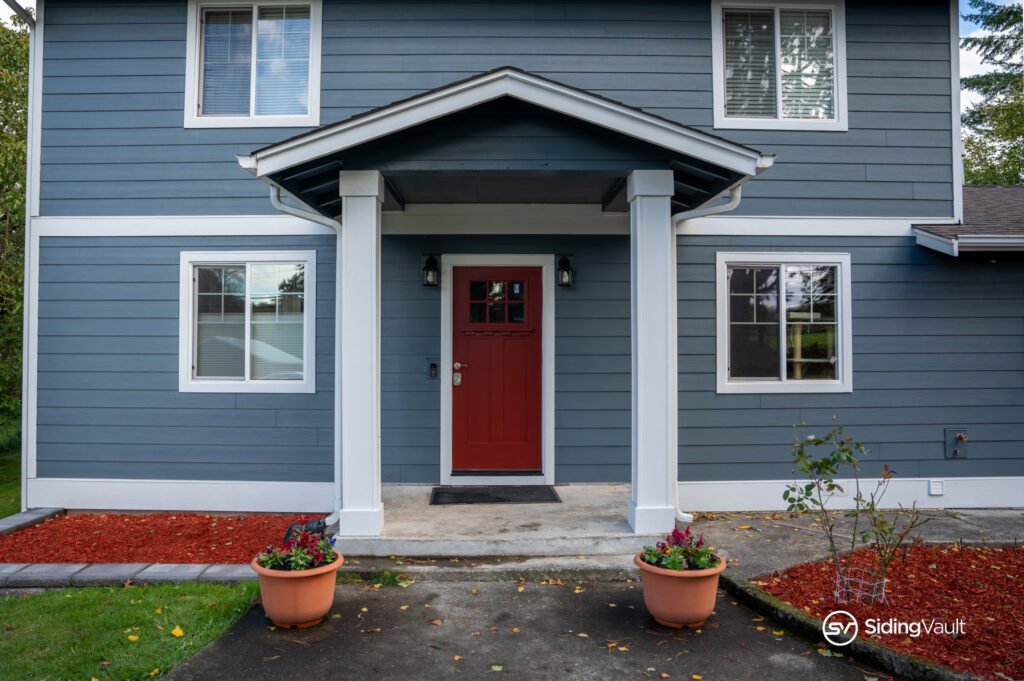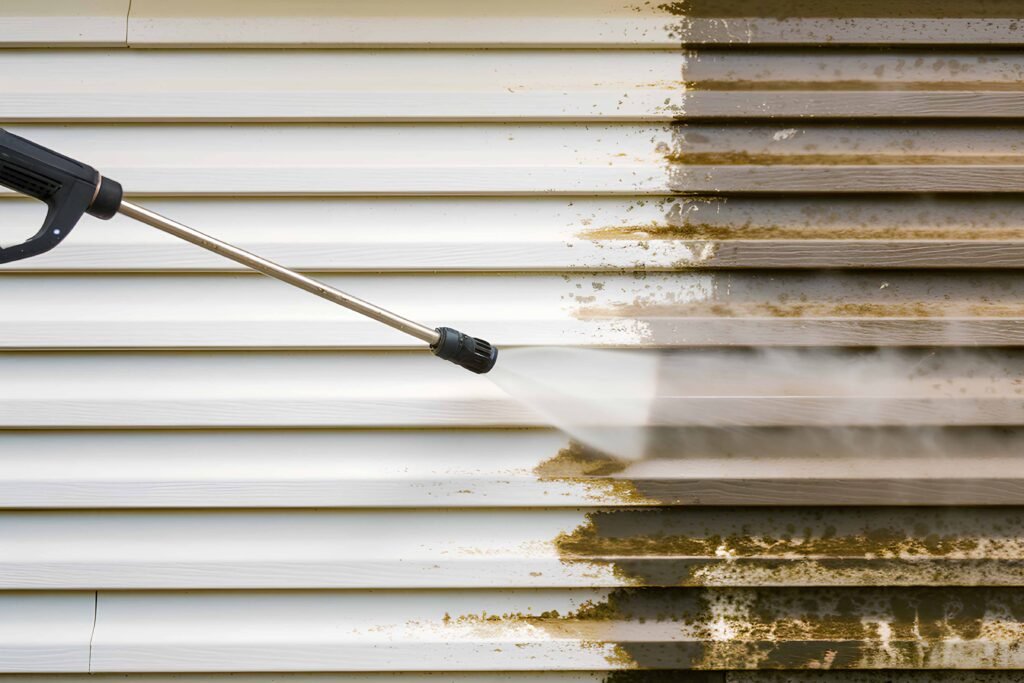Wondering which siding to buy?
Should I get fiber cement, wood, or vinyl? This is a very popular question asked by PNW residents, looking to protect their building envelope. Let Siding Vault, a Washington state professional siding company, help you answer this question.
To those that want Siding Vault’s opinion without reading the details, it’s fiber cement siding. We prefer installing James Hardie® products, such as their market leading siding – Hardie Plank Lap Siding.
Fiber cement siding by James Hardie® is one of PNW’s most popular sidings. Specifically Hardie Plank Lap Siding is heavily purchased by PNW residents for its durability and ability to look like natural wood post exterior paint. Its resistance to rot and insects make this siding a perfect choice for the pacific northwest’s wet and colder climate.
This preference is not exclusive to Siding Vault. Want proof? Read on.
At the time of this blogs posting, James Hardie is the #1 brand of siding in North America. It’s so popular in Washington state, that James Hardie decided to expand their Tacoma plant by 400,000 sqft. James Hardie’s Tacoma plant is the origin of many construction supply companies fiber cement siding products in Washington state, and is making a huge impact on taking over the siding market. This expansion is due to the extremely high demand of their fiber cement siding products. Read more about James Hardie’s Tacoma Plant here.
Why is it in such high demand?
Let’s look at a ultra condensed list of material qualities of the most common siding materials today.
Fiber Cement Siding:
- Material Composition: Made from a mixture of cement, sand, and cellulose fibers.
- Durability: Resistant to rot, insects, and fire, providing excellent durability.
- Maintenance: Low maintenance, with a long lifespan of 30-50+ years.
- Versatility: Comes in various textures and finishes, offering design flexibility.
- Cost: Initial costs can be higher, but the low maintenance typically offset expenses over time.
- Installation: Requires professional installation due to its weight and composition.
Wood Siding:
- Material Composition: Natural wood, with options like cedar, pine, or redwood.
- Durability: Prone to rot and insect damage, but durable with proper maintenance.
- Maintenance: Regular maintenance, including painting or staining, to prevent decay.
- Aesthetics: Offers a classic and natural appearance, with various wood types to choose from.
- Cost: Initial costs can vary, with some wood types being more expensive than others.
Vinyl Siding:
- Material Composition: Made from polyvinyl chloride (PVC).
- Durability: Resistant to rot, but insects/moisture are known to get into vinyl siding seams.
- Maintenance: Low maintenance, doesn’t require painting or staining. Unless it warps from UV rays.
- Versatility: Limited in terms of texture and color options compared to fiber cement.
- Cost: Materials are generally more affordable than fiber cement and wood siding. Labor, not so much.
- Installation: Easier installation, but due to the lack of vinyl siding contractors in Washington, vinyl installation has gone up in price.
Stone Veneer Siding:
- Material Composition: Stone veneer can be made from natural stone or manufactured from materials like concrete, aggregates, and dyes.
- Durability: Both natural and manufactured stone veneers are known for their durability. They are resistant to fading, chipping, and cracking when installed and maintained properly.
- Maintenance: Stone veneer requires relatively low maintenance compared to other siding materials. It does not need painting or sealing as wood siding does.
- Versatility: One of the major advantages of stone veneer is its versatility in design and application. It can be used in a wide range of architectural styles, from rustic to contemporary.
- Cost: While natural stone veneer can be more expensive due to the material and installation costs, manufactured stone veneer offers a more budget-friendly option.
- Installation: Installation of stone veneer requires skill, especially for natural stone, to ensure a secure and aesthetically pleasing result. Manufactured stone veneer is lighter and easier to handle, making the installation process somewhat simpler and more adaptable to various surfaces. Proper installation is crucial to prevent moisture issues and to ensure the longevity of the siding.
Here are a few things to keep in mind regarding the material qualities of the PNW’s most popular siding options above. Vinyl siding originally cost less for material and labor, but times have changed. As Washington homeowners began to experience the costly and underwhelming results of installing vinyl siding, the access to vinyl siding material and specialized labor has decreased, which has reflected the cost of vinyl siding today. As the demand for vinyl siding decreased (rightfully so), the biggest benefits of installing vinyl siding went with it – the low cost.
Wood siding became the next in line when vinyl proved to be unsuccessful. Aside from the fact that many residents have noticed the decline in wood material quality over the years, wood has always been a traditional route in siding material purchasing decisions. Traditionally, wood has been a fair price for what you get, but there is a steady trend in wood material prices going up over time, with fiber cement prices being not far from wood prices. There isn’t any horror stories to tell you in regards to wood siding, as most people know the general maintenance required with wood siding. For those that want remove this general maintenance, we introduce to you, fiber cement siding.
Fiber cement siding used to cost much more than wood siding, but with the logging industry inflation, it very comparable in price to wood. With that being said, the added benefits of fiber cement siding are turning Washington residents its way. Fiber cement typically lasts longer than wood siding, with many brands like James Hardie showing 30-50+ years. Washington state in specific is known to have heavy rain, and fiber cement combats rain much better than its wood alternatives. The luxury of not having to deal with consistent rot repairs will save homeowners ongoing headaches. These notes, in combination with the great homeowner warranties that James Hardie provides, is why Siding Vault recommends fiber cement siding.
The opinions expressed in this blog post are strictly those of Siding Vault and do not necessarily reflect the views or opinions of referenced parties. The information provided on this blog post by Siding Vault is for general informational purposes only.



